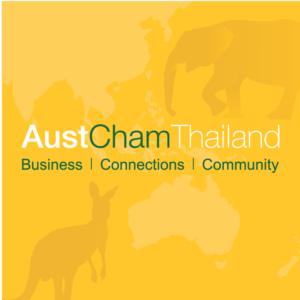The COVID-19 pandemic has exacted a devastating health and economic toll worldwide.
In Thailand, the public health threat has been well contained, with impressively low rates of infection and community transmission.
We congratulate the Royal Thai Government on its outstanding success in mitigating the public health effects of COVID-19.
But the economic impact has been severe, with Thailand expecting GDP to contract by 8 per cent in 2020. Thailand is far from along in seeing economic contractions. Almost all countries now face harsh economic headwinds, as governments balance the complex health versus economy equation.
One benefit of the pandemic is that it has forced us all to find new, more efficient ways of operating.
As the saying goes, “from crisis comes opportunity”. Those countries which seize this opportunity will emerge from the crisis stronger and more resilient. Those which don’t will fall behind.
As an advanced middle-income country with sound policy settings, a diverse industrial landscape and a strategic location close to high growth markets, Thailand is well-placed to bounce back strongly from the economic downturn.
But there are steps Thailand could take to lock in a quicker, more sustainable growth path.
As Ambassadors, we cooperate closely with the Chambers of Commerce of our four countries (Australia, Germany, United Kingdom and United States), collectively known as the Foreign Chambers Alliance (FCA).
In total, FCA members represent more than 2,000 companies in Thailand – from SMEs to multinationals – and employ around one million Thai workers.
When we asked the FCA members what Thailand could do to develop a more attractive business environment, one common theme emerged: make doing business easier.
Based on direct feedback from our business communities, we respectfully propose 10 measures Thailand could implement now to improve the business environment and lay the foundation for a turbocharged post-COVID recovery.
For example, as a special measure during the pandemic, the Thai Customs Department has permitted the use of electronic documents when importing goods under the ASEAN-Australia-New Zealand Free Trade Agreement. This interim measure helps importers, exporters and most importantly, Thai consumers, allowing goods to reach the Thai market quicker and more cheaply.
Having shown that this new system works, it now needs to be standardised as normal practice.
This is just one small, simple measure. And it requires no more than Thailand formalising a measure that it has already introduced on a temporary basis.
According to our business communities, there are a number of further steps Thailand could take to streamline business practices and make Thailand an even more attractive destination for trade and investment.
Examples of such measures are moving government processes online, eliminating redundant regulations, simplifying access to visas, and improving the investment application process. The attached infographic represents in pictures each of the 10 measures in more detail.
Thailand has made very impressive gains in recent years in the World Bank’s Ease of Doing Business index, moving from 46th to 26th to 21st position in recent years.
By implementing the 10 measures the FCA proposes, we predict Thailand could quickly move into the top 10 of the World Bank index.
While this would be an impressive achievement, more importantly it would set the Thai economy on a long-term and sustainable growth trajectory.
COVID-19 has shown the importance of flexibility and adaptability in how governments and businesses operate.
To build a ‘new economy’ – and break free from the middle-income trap – Thailand’s business environment should incentivise innovation, competition and transparency.
The 10 measures we suggest, would provide the basis for such an environment. They would not only make Thailand a more attractive place to do business, they would position Thailand for a post-COVID economic recovery that matches its successful health response.
Sources:



